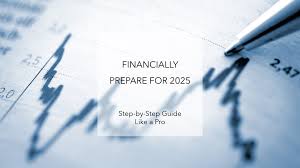Secure financing for a property purchase is one of the most crucial steps in the home-buying process. Whether you’re buying your first home or investing in property, understanding how to secure financing can help you make more informed decisions and avoid financial pitfalls. Here’s a step-by-step guide to help you navigate the process of securing financing for your property:
1. Understand Your Secure Financing Options
There are several ways to finance the purchase of a property. The most common options include:
- Traditional Mortgages: These are loans provided by banks or mortgage lenders where you borrow money to buy the property and pay it back over a fixed term, usually 15 to 30 years. The interest rate can be either fixed or variable.Secure Financing
- Home Loans: These are similar to mortgages but are typically more flexible in terms of repayment schedules and loan amounts. Depending on your financial institution, you may be able to secure lower rates or special offers.
- Government-Backed Loans: If you qualify, there are government programs (like FHA, VA, or USDA loans in the U.S.) that offer lower interest rates, lower down payments, and more lenient qualification requirements for first-time buyers or those in specific sectors.
- Personal Loans: For smaller loans, personal loans from banks or credit unions can sometimes be used to finance property purchases, though they typically come with higher interest rates than mortgages.
- Home Equity Loan or Line of Credit (HELOC): If you already own a home and have equity in it, you could take out a loan or line of credit against that equity to finance your new property.
2. Check Your Credit Score
Your credit score is one of the most important factors lenders consider when deciding whether to approve your loan application and at what interest rate. Generally, the higher your credit score, the more favorable your loan terms will be.
- Good Credit (750+): You’re likely to qualify for the best interest rates and loan terms.
- Fair Credit (650-749): You may still qualify for financing, but at higher interest rates.
- Poor Credit (below 650): You may face difficulty in securing financing and could face higher interest rates or stricter loan conditions.Secure Financing
You can check your credit score through credit bureaus like Equifax, Experian, or TransUnion (in the U.S.) or through your bank in many countries. If your score is low, you may want to work on improving it before applying for a loan, such as paying down existing debt or correcting any errors on your credit report.
3. Gather the Required Documents
To apply for financing, you’ll need to provide various documents that verify your income, employment, and financial situation. Common documents include:
- Proof of Identity: Passport, national ID, or driver’s license.
- Proof of Income: Pay stubs, tax returns, or bank statements.
- Employment History: Employment contracts or references from your employer.
- Credit Report: If requested by the lender.
- Assets and Debts: Documentation of other assets (savings, investments) and any existing debts you have.
Having these documents ready can speed up the process and increase your chances of approval.Secure Financing
4. Determine the Loan Amount You Need
Before applying for financing, determine how much you need to borrow. This will be based on the property’s asking price and the down payment amount you can afford. Many lenders require a down payment of around 20% of the property price, though some government-backed programs may allow for lower down payments (sometimes as low as 3%).Secure Financing
Factor in additional costs such as:
- Closing costs (usually 2-5% of the property price).
- Insurance (homeowner’s insurance, mortgage insurance).
- Property taxes.
5. Compare Lenders and Loan Options
Shop around for the best financing options by comparing different lenders (banks, credit unions, online lenders) and their loan offers. Pay attention to:
- Interest Rates: Fixed-rate or adjustable-rate loans.
- Loan Terms: How long is the repayment period? Typically 15, 20, or 30 years.
- Fees: Application fees, closing costs, prepayment penalties, and more.
- Customer Service: Look for a lender with a reputation for good customer service, as buying a property can be a stressful process, and you’ll want a lender who is responsive and helpful.
Use online mortgage calculators to estimate monthly payments based on different loan amounts, interest rates, and terms.
6. Pre-Approval Process
Once you’ve chosen a lender, you can apply for pre-approval. A pre-approval letter is a written statement from a lender that indicates the amount they are willing to lend you based on your financial profile. While not a guarantee of a loan, pre-approval gives you a clearer idea of how much you can afford and shows sellers that you are a serious buyer.
To get pre-approved, you’ll need to:
- Provide the necessary documentation (as mentioned above).
- Complete the lender’s application process.
- Undergo a credit check and income verification.
A pre-approval letter can give you an advantage when competing against other buyers, as sellers are more likely to trust you to close the deal.Secure Financing
7. Submit Your Application
Once you find a property and are ready to proceed, you’ll need to formally apply for the loan. The lender will review your application, credit history, and financial documents to assess your eligibility. This may take anywhere from a few days to a few weeks, depending on the lender and the complexity of your application.
At this stage, the lender may require additional information or documentation, so be prepared to provide anything they request.
8. Loan Approval and Closing
Once your loan is approved, you’ll receive a formal loan offer, which includes all the terms, such as the interest rate, repayment schedule, and any fees involved. If you accept the offer, the next step is closing.
During closing, you’ll sign the final paperwork, pay the down payment and closing costs, and complete the transaction. Once everything is finalized, you’ll receive the keys to your new property.
Final Thoughts – Secure Financing
Securing financing can seem like a complex process, but by understanding your options, preparing your financial documents, and shopping around for the best rates, you can navigate it more confidently. If you’re considering buying a property, it’s always a good idea to consult with a mortgage advisor or financial expert who can guide you through the entire process.
If you’re looking for properties in Durgapur or West Bengal, check out Durgapur Property for a wide range of listings, expert advice, and assistance in securing financing for your purchase.Secure Financing,Secure Financing








